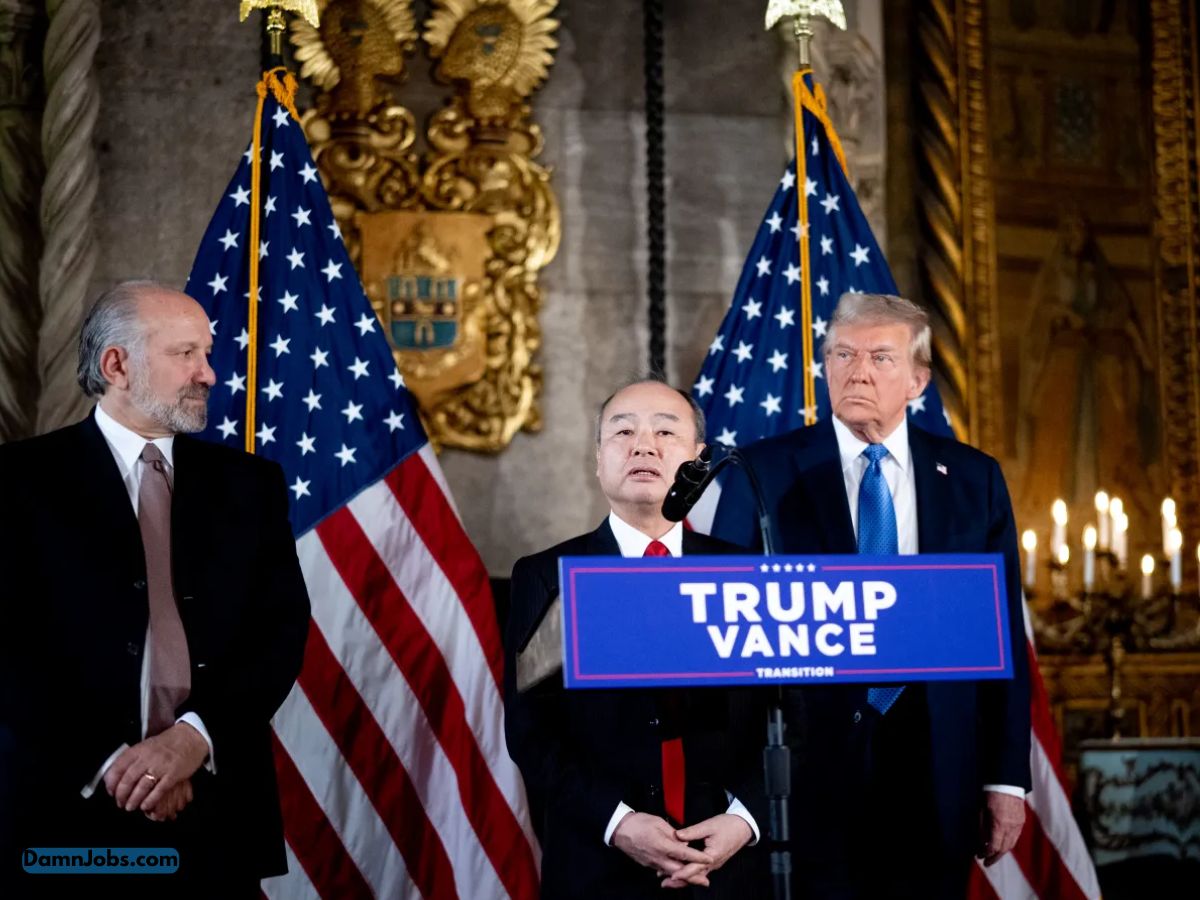SoftBank is back with another huge promise: 100,000 new jobs in the U.S. and a $100 billion investment in cutting-edge tech like artificial intelligence.
This all happened during a recent announcement with President-elect Donald Trump, who’s gearing up for his second term.
Sound familiar? That’s because SoftBank’s CEO, Masayoshi Son, made a similar promise back in 2016.
He pledged $50 billion and 50,000 jobs back then, too. But did all those jobs actually happen?
Turns out, it’s pretty unclear. SoftBank did invest a lot of money in the U.S.—around $75 billion, according to reports—but no one can say for sure how many jobs were really created because of it.
Why This Matters
Big promises like these grab attention and make headlines, especially for Trump, who likes to position himself as a “deal-maker.”
But do these flashy announcements lead to real jobs? Past examples suggest that might not be the case.
Take Foxconn, a tech manufacturer. It once promised a $10 billion plant in Wisconsin with 13,000 jobs.
The real number? Closer to 1,500. Other companies like Alibaba and Broadcom also made similar promises that didn’t pan out during Trump’s first term.
What Happened Last Time?
SoftBank’s investments during Trump’s first term mostly went to tech companies like Uber, WeWork, and Slack.
But a lot of these investments were already planned before Trump took office.
And the jobs? Investigators couldn’t find proof that 50,000 new jobs were actually created.
- SoftBank never shared how many jobs they actually added.
- Some companies they backed, like Uber and WeWork, ended up laying off thousands of employees.
- Smaller startups they invested in didn’t have the scale to create tons of new jobs.
Reports say that SoftBank’s first promise led to about 10,200 jobs—not even close to their 50,000-job goal.
Why These Promises Keep Coming
These job promises aren’t just about jobs. They help CEOs like Son stay in good standing with Trump’s administration, which controls things like mergers and trade tariffs.
For example, when SoftBank first made its big pledge, the government was deciding whether Sprint (a company SoftBank owned) could merge with T-Mobile. That merger eventually got approved.
Now, with Trump looking at new tariffs on countries like Japan (where SoftBank is based), making big promises could be a way to get on his good side again.
The Takeaway
History shows these big promises might sound exciting, but they don’t always deliver.
SoftBank’s first job pledge fell short, and other companies’ commitments didn’t meet expectations either.
As Trump starts his second term, expect more CEOs to make similar splashy announcements. But whether those promises will truly bring jobs? Only time will tell.


